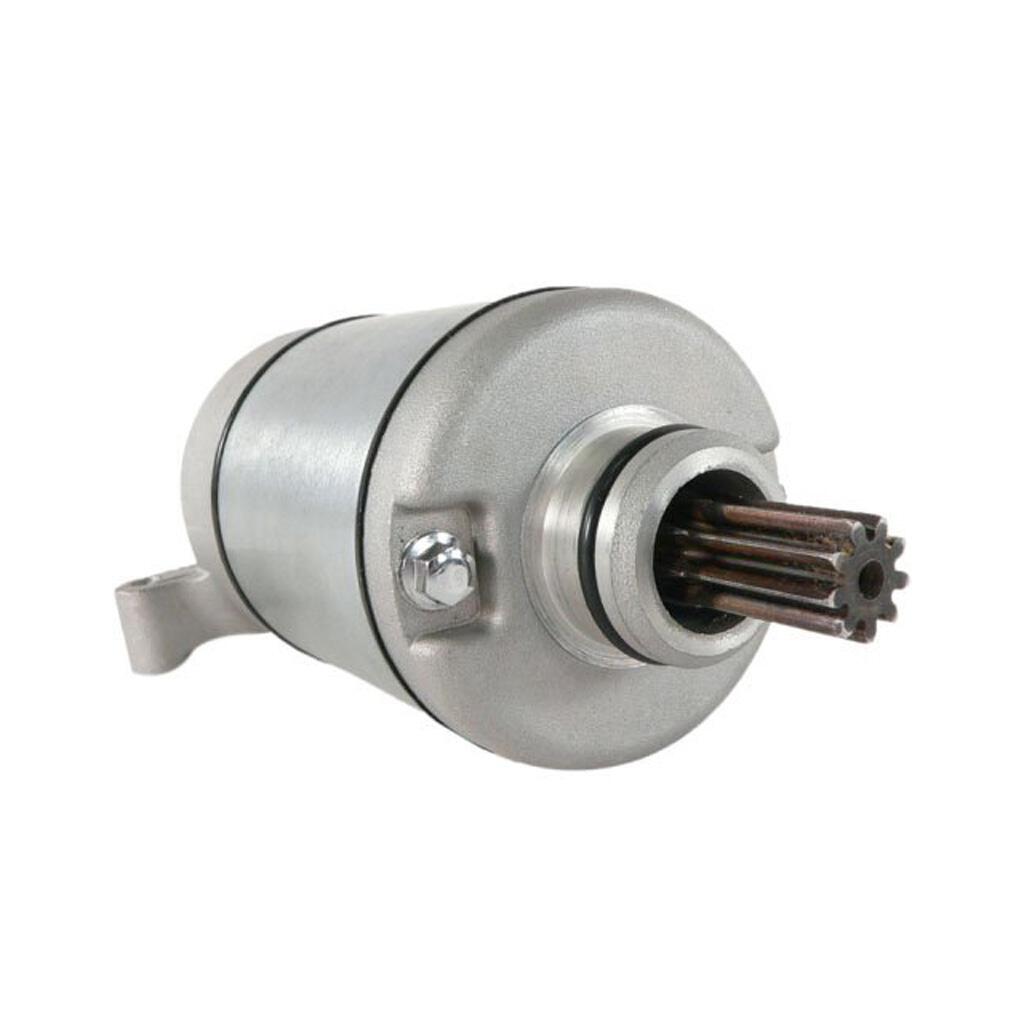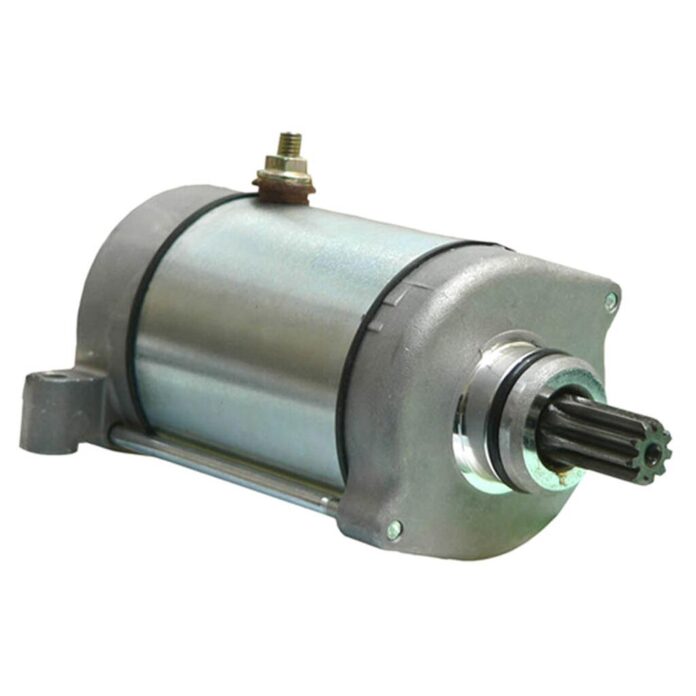When it comes to ensuring your vehicle operates at its peak, few components play as crucial a role as the BF Falcon Starter Motor. This essential piece of automotive hardware is responsible for igniting your engine’s combustion process, setting the stage for a smooth and efficient drive. In the complex machinery of your vehicle, the starter motor might seem like a small part, but its impact on overall performance is undeniable. Understanding its function, potential issues, and maintenance needs is key to maximizing your car’s reliability and longevity. Let’s delve into the intricate world of the Falcon Starter Motor and uncover how it can influence your vehicle’s performance.
Understanding the Function of Your FG Starter Motor
The FG Starter Motor plays a pivotal role in your vehicle’s operation by jumpstarting the engine’s combustion process. This process begins when the ignition switch is turned on, signaling the starter motor to engage. The starter motor then utilizes electrical power from the battery to spin the engine a few revolutions so that the fuel-air mixture can be compressed and ignited. This ignition is what brings your vehicle to life, ready for the drive ahead.
A critical aspect of the starter motor’s operation lies in its ability to convert electrical energy into mechanical energy. This conversion is made possible through the interaction of the motor’s internal components, including the solenoid, armature, and brushes, which work in unison to create the necessary torque to turn the engine over. The solenoid, upon receiving an electrical signal from the ignition, pushes the starter gear forward to mesh with the engine’s flywheel, a process that is both precise and critical for a smooth start.
Furthermore, the starter motor’s efficiency is heavily reliant on a strong electrical connection and a fully charged battery. A drop in battery voltage or a poor electrical connection can hinder the starter motor’s ability to perform its function effectively, leading to delayed or failed starts. This underscores the importance of regular battery checks and maintenance to ensure the starter motor has the necessary power to operate efficiently. By grasping the fundamental workings of your BF Falcon’s starter motor, you’re better equipped to understand its critical role in your vehicle’s daily performance and overall health.
Common Issues with the BA Falcon Power Steering Line
The BA Falcon power steering line is integral to the vehicle’s handling and overall driving experience, yet it can be prone to several common issues that can impair its function. One of the most frequently encountered problems is the development of leaks within the power steering system. These leaks can occur due to wear and tear on the hoses and seals, leading to a loss of hydraulic fluid. This loss significantly affects the ease of steering, potentially making the vehicle more difficult to handle, especially at lower speeds where power steering is most needed.
Another issue that can arise is contamination of the power steering fluid. Over time, the fluid can become contaminated with debris and other particulates, which can clog the system and lead to decreased performance. This contamination can also cause damage to other components within the power steering system, including the pump and the rack, leading to more extensive repairs if not addressed promptly.
Additionally, wear on the power steering belt can also impact the system’s efficiency. A worn or slack belt may not adequately drive the power steering pump, leading to a decrease in hydraulic pressure and a resultant loss of steering assistance.
Finally, temperature fluctuations can also pose problems for the Falcon’s power steering line. Extreme cold can thicken the power steering fluid, making it harder for the system to operate smoothly, while excessive heat can degrade the fluid more quickly, reducing its effectiveness.
Addressing these issues promptly through regular inspection and maintenance can help ensure that the power steering system remains functional, preserving the vehicle’s handling characteristics and safety.
 Maintenance of the BF Falcon Power Steering Line
Maintenance of the BF Falcon Power Steering Line
Maintaining the BF Falcon Power Steering Line is critical for ensuring the system functions correctly and prolongs its lifespan. Regular inspection is the first step in maintenance, focusing on detecting any signs of wear or leakage in the hoses and connections. Since the power steering fluid plays a vital role in the smooth operation of the steering system, it’s essential to check its levels and quality periodically. If the fluid appears dark or contains debris, a flush and replacement might be necessary to prevent damage to the steering components.
Another vital aspect of maintenance involves addressing the power steering belt. This component should be inspected for signs of wear or slackness. A belt that is not in good condition can lead to insufficient pressure being generated in the power steering system, which affects the vehicle’s handling. If wear is detected, replacing the belt promptly will help maintain optimal steering performance.
Additionally, being mindful of changes in steering performance during extreme temperatures can help in identifying potential issues with the power steering fluid’s viscosity. In colder climates, using a fluid that maintains its flow properties at low temperatures can help prevent steering stiffness. Conversely, ensuring the fluid does not degrade quickly in hot conditions is crucial for maintaining steering efficiency.
Optimizing Starter Motor Performance
To ensure the Falcon Starter Motor operates with maximum efficiency, maintaining the battery’s health is paramount. A robust battery not only supports the starter motor but also prevents unnecessary strain that could lead to premature wear. Selecting the appropriate starter motor is equally crucial; opting for parts specifically designed for the BF Falcon guarantees compatibility and avoids the pitfalls of using generic, aftermarket options that may not align with the vehicle’s specifications.
Regular inspection of the starter motor and associated electrical connections can identify potential issues before they escalate. Corrosion at the terminals or loose connections can impede the flow of electricity, compromising the starter motor’s performance. Addressing these problems promptly ensures that the motor receives the power it needs without interruption.
It’s also beneficial to consider the impact of environmental conditions on the starter motor. In colder climates, for instance, the motor may require more power to operate effectively. Ensuring that the battery is sufficiently charged and that the electrical system is in optimal condition can mitigate these challenges.
Incorporating these strategies not only optimizes the performance of your Falcon Starter Motor but also contributes to the vehicle’s overall health. By focusing on preventative maintenance and using parts that enhance rather than detract from the starter motor’s functionality, drivers can enjoy a more reliable and efficient starting process, readying their vehicle for the journey ahead without concern.
Preventing Starter Motor Failures
Ensuring the longevity of the Falcon Starter Motor necessitates a proactive approach to vehicle care. An essential aspect of this care involves mitigating undue stress on the starter motor, particularly from frequent short trips that don’t allow the engine to reach its optimal operating temperature. Such practices can accelerate wear on the starter motor, reducing its lifespan.
Equally important is the maintenance of the vehicle’s electrical system. This encompasses not only the battery but also the connections and cables that supply power to the starter motor. A healthy, fully charged battery ensures that the starter motor has the necessary power for each start, minimizing strain. Conversely, a weak or undercharged battery can force the starter motor to work harder, leading to increased wear and potential failure.
Attention should also be given to the starter motor itself and its connections. Regular inspections can help identify signs of wear or damage early, allowing for timely repairs or adjustments. This may include looking for signs of corrosion on the terminals, which can impede electrical flow, or checking for loose connections that could disrupt power to the motor.
Implementing these preventative measures not only aids in avoiding starter motor failures but also supports the overall electrical health of the vehicle. By focusing on care that minimizes stress and ensures a strong power supply, the Falcon Starter Motor can provide reliable service, contributing to the vehicle’s readiness and performance.
Maximizing Lifespan with Proper Maintenance
Maintaining the optimal functionality of your Falcon Starter Motor necessitates a comprehensive approach to vehicle maintenance. This means not only staying vigilant with regular vehicle check-ups but also being proactive in addressing any issues related to the starting system as soon as they arise. One of the cornerstone practices for prolonging the life of your starter motor involves ensuring that all components tied to the ignition and electrical systems are in pristine working order. This includes but is not limited to, checking the battery’s charge and health, inspecting electrical connections for signs of wear or corrosion, and ensuring cables are secure and intact.
In addition to these preventative measures, the choice of replacement parts when repairs are necessary cannot be understated. Opting for high-quality, compatible parts for your BF Falcon ensures that every component operates harmoniously, reducing unnecessary strain on the starter motor. This practice of using premium parts not only extends the life of the starter motor itself but also supports the vehicle’s overall electrical system health.
Regular attention to the vehicle’s starting behavior can also offer insights into the starter motor’s condition. Immediate action upon noticing any irregularities, such as unusual noises during starting or difficulties in engine turnover, can prevent minor issues from escalating into significant problems. This proactive stance on maintenance, coupled with a keen eye for detail, serves as the backbone for maximizing the lifespan of your Falcon Starter Motor, thereby ensuring its reliability and performance for the long haul.
FAQS
What are the signs that my Falcon Starter Motor might need replacing?
Noticeable signs include consistent difficulty when attempting to start the vehicle, hearing unusual noises like grinding or clicking during the ignition process, and situations where the car does not start. These symptoms suggest that the starter motor may be failing and could require a replacement.
Is it feasible for me to replace the Falcon Starter Motor on my own?
While some car enthusiasts with mechanical aptitude might consider taking on this task, replacing a starter motor involves technical knowledge and precision. Due to the complexity and the risk of incorrect installation, it is generally advisable to seek the expertise of a professional mechanic for this job. They can ensure that the replacement is done correctly and safely.
What is the expected lifespan of a Falcon Starter Motor, and how can I extend it?
The durability of a starter motor is influenced by several factors including maintenance habits, vehicle usage, and operating conditions. A well-maintained starter motor can last for over 100,000 miles. Extending its lifespan involves regular inspection and maintenance, including ensuring a healthy electrical system, keeping the battery in optimal condition, and using high-quality, compatible replacement parts when necessary. Paying attention to any changes in starting behavior and addressing issues promptly can also contribute to extending the life of your starter motor.
Conclusion
In sum, the efficacy and dependability of your vehicle heavily depend on the proper functioning of the Falcon Starter Motor. By diving into its operational principles, identifying potential setbacks, and committing to a meticulous maintenance routine, drivers can significantly boost their car’s performance. Optimizing the starter motor not only enhances the ignition process but also contributes to the vehicle’s overall health, ensuring a reliable start under various conditions. Preventative measures, including routine checks and addressing minor issues before they escalate, are fundamental in averting starter motor failures.
| Other Good Articles to Read |
| Blogs Rain |
| Cme Blog Spot |
| Garcias Blogs |
| Yyc Blogs |
| Guiade Blogs |
| Blogs-Hunt |
| Impact-Blog |
| Smarty Blogs |
| Ed Blog |
| Mo Blogs |
| Blogs Em |
| Blogs T |
| Related Business Listings |
| Contact Directory |
| Local Business Profiles |

